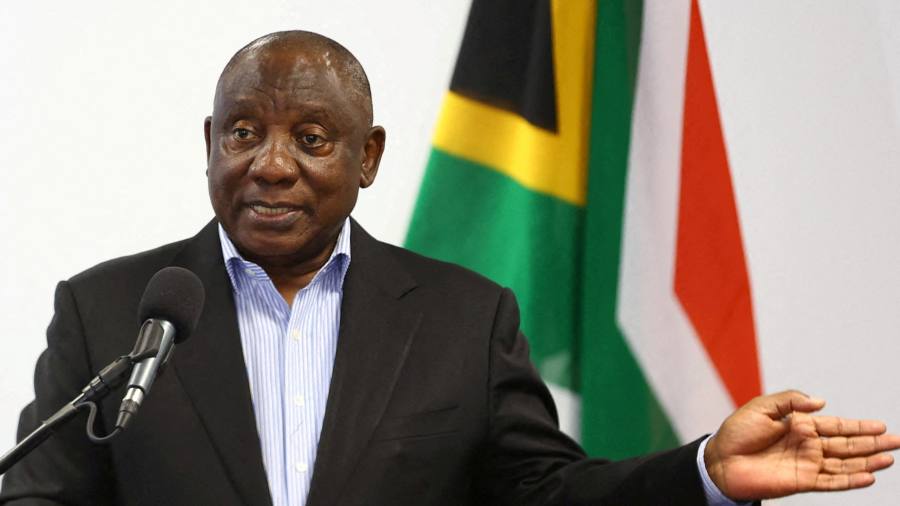
South African president Cyril Ramaphosa has re-established a permanent anti-corruption agency in Africa’s most industrialised nation in his official response to the findings of an inquiry that blamed his governing African National Congress for the country’s worst post-apartheid graft scandal.
Ramaphosa announced the overhaul in a televised address on Sunday as part of “a new chapter in our struggle against corruption” after a decade of accusations of looting under Jacob Zuma, the former president, that has been blamed for rolling blackouts and other ills holding back South Africa’s economy.
The government will make permanent a special directorate of the national prosecuting authority that has been investigating the plunder, known locally as “state capture”.
The move effectively revives a similar prosecutorial unit, the Scorpions, that was neutered years ago by the ANC, which has ruled the country since 1994.
“This response constitutes an ethical, moral and institutional departure from the abuses revealed [by the inquiry],” Ramaphosa said. “The people of South Africa are tired of corruption and want it to end,” he added.
The inquiry, headed by South Africa’s chief justice, concluded this year that Zuma “readily opened the doors” for looting of the Eskom power monopoly by the Guptas, three Indian-born brothers, and that he manipulated the national spy agency to pursue political opponents as part of a policy of wrecking institutions.
Zuma quit power in 2018 after Ramaphosa was elevated from being his deputy to leadership of the ANC. The ex-president denies any wrongdoing, as do the Guptas. Zuma was briefly jailed last year for contempt of a court order to attend the inquiry. Hundreds died in violent unrest that followed his sentencing.
Tensions over the state capture saga are again flaring as Ramaphosa is set to run for re-election as ANC president at the end of this year, and as prosecutors make headway with big cases tied to the scandal.
Two of the Gupta brothers were arrested in the United Arab Emirates this year over a case in South Africa, which is bidding to extradite them.
But analysts say a culture of impunity still reigns within the ANC, and many of the state capture inquiry’s recommendations would threaten the party’s grip on government if implemented in full. These findings include a call to end the so-called “cadre deployment” of loyalists to public positions.
Ramaphosa has instead proposed independent panels to vet board appointments at state companies, and said donating to parties in expectation of being rewarded with state contracts would become a crime.
Some of Ramaphosa’s own ministers are heading to the courts to challenge adverse findings that the inquiry has made against them. They have denied wrongdoing.
Ramaphosa declined to commit to more sweeping political reforms proposed by the inquiry, such as a new anti-corruption commission or direct election of the president, who is currently chosen by legislators.
On Saturday Zuma called state capture an “illusion” and said he had been abused by the inquiry.
Zuma also accused his successor of corruption and treason over revelations that the president had illegally kept a large cash sum of foreign currency at his Phala Phala game farm before it was stolen in 2020 and the theft was allegedly covered up.
“I often wonder what the situation would have been if I was the one accused of having millions of dollars hidden under mattresses,” Zuma said.
Ramaphosa has denied any wrongdoing over the Phala Phala theft and has said that the money had been legitimate proceeds from the sale of livestock.